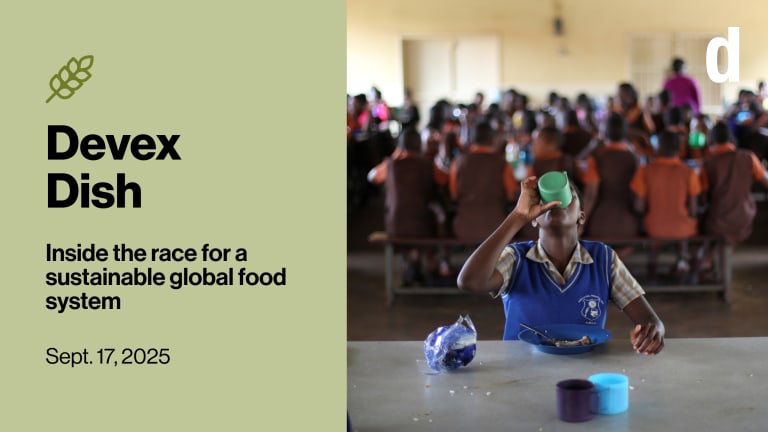
EDITOR’s NOTE: A recent report gave high marks to Feed the Future, and suggested sustained commitments to food production for the next seven years. But is this enough to sway the House Budget Committee to continue funding the program? U.S. Global Leadership Coalition Policy Director John Glenn discusses in this blog post.
As we enter the presidential general election campaign season, many are wondering about the fate of the Obama Administration’s signature development initiatives. Feed the Future, its food security initiative, has garnered generally positive reviews for its shift from providing food aid toward helping countries improve their own agricultural production. Central to this is a model of partnership and country ownership, whereby the United States helps countries that have the capacity and legitimacy to develop and implement their own agricultural priorities.
Yet Feed the Future’s prospects remain in doubt without authorizing legislation to ensure it endures beyond the current Administration and with calls in the House to zero out the program. This week, the Chicago Council on Global Affairs released its 2012 Progress Report on U.S. Leadership in Global Development that gives the program generally high marks for its efforts, in Council President Marshall Bouton’s words, “to put agriculture at the top of the development agenda.”
The report grades the State Department, USAID, and the MCC as “outstanding” in their efforts, highlighting the leadership of Secretary Clinton, Administrator Shah, and CEO Yohannes for embracing the importance of agriculture in foreign policy. It praises USAID for building stronger monitoring and evaluation of programs to measure results, developing innovative public-private partnerships, and launching the Women’s Empowerment in Agriculture Index, since most rural farmers are women. High marks are also given to the MCC for its contributions to agriculture infrastructure such as rural roads and irrigation, as well as its country ownership model. Congress receives a “good” grade for its increasing appropriations from 2009-12, from $640 million in 2009 to $1.3 billion in 2012. The report, however, laments the failure to pass the Global Food Security Act of 2009, championed by Senators Kerry and Lugar.
What does this tell us about Feed the Future’s merits at a time when every budget line is being scrutinized under the threat of sequestration? The report’s broadly positive tone is qualified by real concerns for the future. At the release event for the report, co-chairs Catherine Bertini and Dan Glickman called for the progress made to be institutionalized with Congressional authorization. Significant increases in food production, they suggested, will only be visible after a decade, which would require sustaining the commitments of the past three years for another seven years. That’s a tall order when looking at most deficit reduction proposals. This would require the Administration to commit time to building understanding and support on the Hill, for which there may be a very short window in an election year.
Republished with permission from the U.S. Global Leadership Coalition. View original article.








